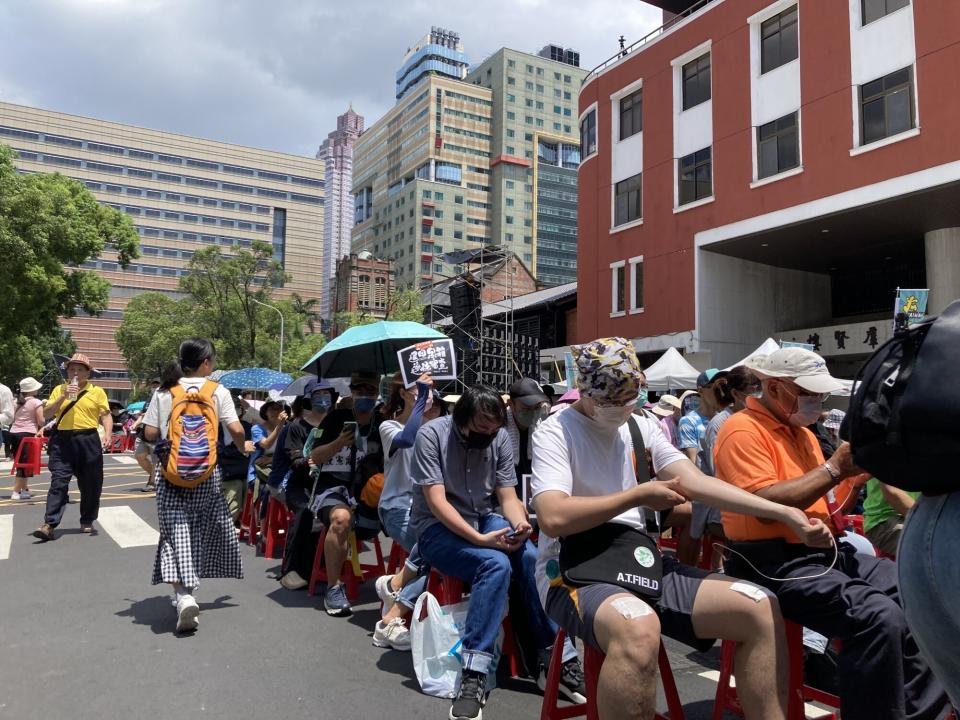Taiwan Political Standoff Worsens, Threatening Lai’s Agenda
- Oops!Something went wrong.Please try again later.
(Bloomberg) -- Taiwan’s opposition Kuomintang threatened to derail much of the ruling Democratic Progressive Party’s agenda, amid a deepening row over new legislation that would let lawmakers probe President Lai Ching-te’s government and summon top officials.
Most Read from Bloomberg
CDK Hackers Want Millions in Ransom to End Car Dealership Outage
Russia Is Storing Up a Crime Wave When Its War on Ukraine Ends
Dubai Real Estate’s Resilience May Signal End of Boom-Bust Cycle
Wall Street’s Smart-Trade Brigade Thrashed Again on Stock Boom
Private Jets and Yachts Land in Nantucket for Jefferies Takeover
“If the DPP insists on acting against reform and public opinion,” then the KMT will fight it on issues ranging from nuclear power to revenue and expenditure laws, KMT leader Eric Chu told reporters. The Cabinet later confirmed it will challenge the laws in the Constitutional Court.
On Friday, the KMT and its Taiwan People’s Party allies, who hold a narrow legislative majority, again voted in support of laws giving them more power, rejecting the Cabinet’s request to reconsider the legislation. They argue it will improve scrutiny of government. The DPP and many civil groups view the changes as a power grab on an island that lies at the heart of China-US tensions.
The row deepens an already fractious relationship between the parties, whose lawmakers have engaged in shouting and shoving matches in parliament since Lai’s May 20 inauguration. Tens of thousands of people across the island protested during initial debates in May, mostly in the capital of Taipei.
The KMT’s Chu said the DPP is out of step with public opinion on the reforms, and the party is prepared to fight the ruling party’s efforts to end nuclear power and abolish the death penalty. “We will do our utmost to push for important bills, including the extension of nuclear power plants, showing that the KMT is standing with public opinion,” he said.
Lai said in a statement that he respects the decision to submit the laws for constitutional review.
While the DPP made history this year by winning its third successive presidential election, it lost control of the legislature. The vote Friday shows Lai may struggle to enact his agenda in the face of a hostile parliament. Earlier this week, he announced plans for new defense, health care and climate committees to help push through his policies.
The latest vote means the legislature is awarding itself investigative powers that will let it hold hearings, with penalties or even jail time possible for public officials who refuse to attend or testify. The bills were initially passed in May but were sent back to lawmakers.
Taiwan already has the Control Yuan, which has the power to investigate and impeach officials. It has said the laws risk violating the separation of powers. The DPP has expressed concern that companies could be forced to reveal sensitive commercial information.
“If TSMC is going to be summoned and probed by the legislature, they would be forced to give out trade secrets, and Taiwan is basically done,” said one protester, a 35-year-old chip industry worker surnamed Cheng, referring to Taiwan Semiconductor Manufacturing Co., maker of the bulk of the world’s most advanced chips.
Around 1,000 protesters gathered outside the legislature Friday, with organizers setting up chairs, tents and air coolers. What started as a bright, hot day in the capital saw afternoon thunderstorms that may deter some attendees. About 500 police were reportedly deployed.
It was unclear how the Constitutional Court would rule on the new laws, according to Liao Dachi, emeritus professor at Institute of Political Science of National Sun Yat-sen University. The amendments effectively empowered lawmakers, whose authority has been much weaker historically compared to the executive branch, she said.
Markets in Taiwan have been largely unfazed by the political confrontation. That benchmark Taiex stocks gauge rose 3.3% this week and is near a record high. The Taiwan dollar is little changed for the week, last trading at 32.37 to the greenback.
Most Read from Bloomberg Businessweek
©2024 Bloomberg L.P.



